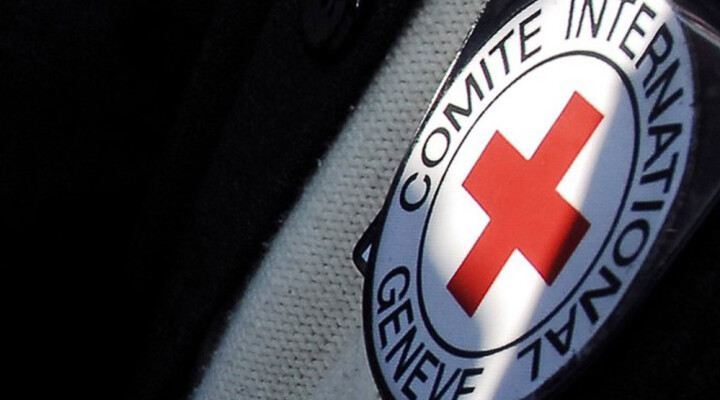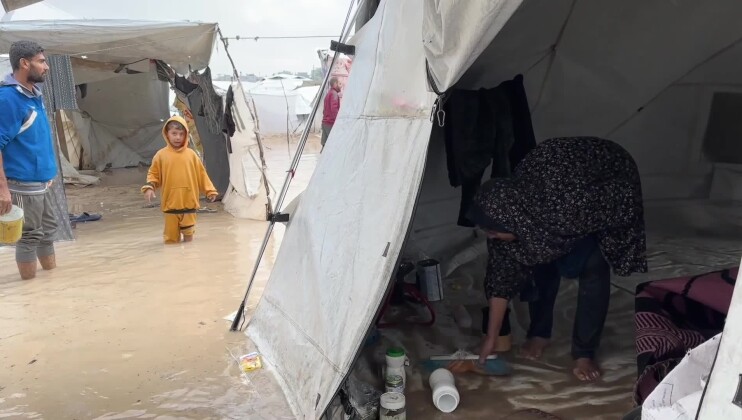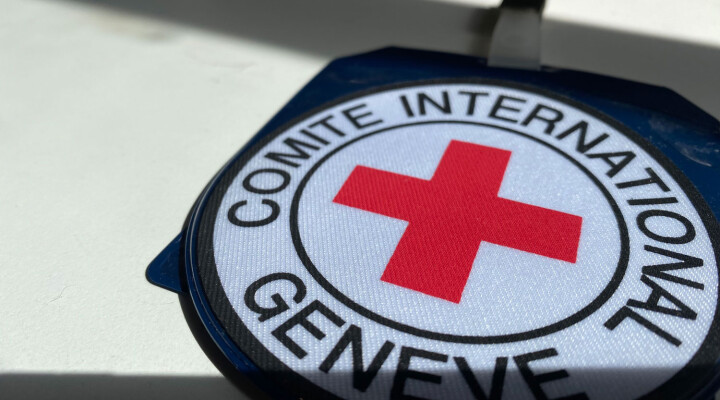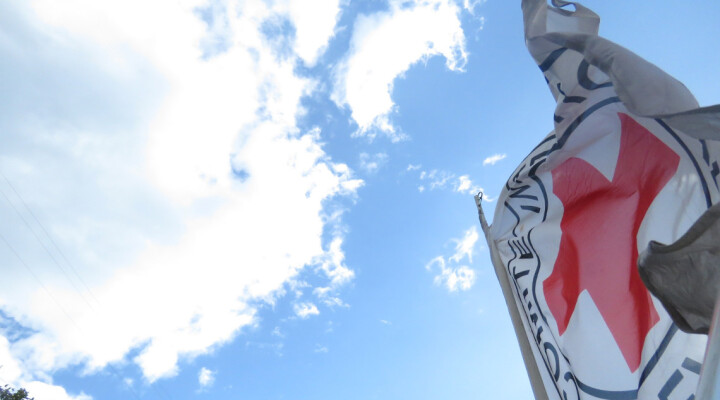Lebanon: Bruised by multiple blows, people risk “huge, hidden scars”
Beirut/Geneva (ICRC) – Three weeks after a massive explosion ripped through Beirut port and surrounding neighbourhoods, the physical and psychological damage it inflicted is staggering.
At least 180 people lost their lives in the August 4 blast and some people remain missing or unidentified. More than 6000 people were injured, and hundreds remain in hospital.
“Not all wounds are visible, whether to a body or a beloved city. On top of the horrific physical injuries that are being treated in hospitals, people risk developing huge, hidden scars unless they are supported through the psychological consequences of this catastrophe. Mental health support is a vital part of the medical response," said Marco Baldan, a surgeon with the International Committee of the Red Cross in Lebanon who helped coordinate the emergency response.
The accounts of suffering caused by the explosion are harrowing. Some people saw family members die in front of them while others are still looking for missing loved ones. Others saw their homes crumble around them and a lifetime of possessions destroyed in a split second. Adults and children who received life-changing injuries struggle to adapt to their new reality, others feel guilt that they survived or were not able to save others in the aftermath.
“The impact on people has been horrific. A Syrian refugee who lost her sole surviving child in the explosion called our hotline. She had already lost one child in the war and was overwhelmed with grief and needed urgent help”,” said Isabel Rivera Marmolejo, the mental health delegate for the ICRC in Lebanon.
“Even people who appear relatively unscathed or who escaped with minor injuries feel a profound sense of loss or despair. This is a very normal reaction to such a shocking event and they do not have to deal with it alone. There is support available,” she continued.
Residents of one of the worst-affected neighbourhoods in the city summed up the disbelief at what had happened and fear for the future when they spoke to the ICRC.
“We are unable to process it,” said Rodrigue Makhlouf, a resident of the Karantina neighbourhood, near the port. “We’ve witnessed lots of incidents and explosions in Lebanon, but this is the first time we feel unsafe.”
“My daughter was injured on her face and ears. The other day she kept screaming,” said Elie Al Chayeb. “How will children overcome the memories of what happened?”
The explosion happened when Lebanon was already in an extremely fragile state, after months of battling the coronavirus pandemic amid a spiraling economic crisis. The loss of jobs, businesses and savings had a harsh impact on mental health in the past ten months, with an increase in symptoms related to depression, such as suicidal thoughts and hopelessness.
“Once the pandemic started, anti-coronavirus measures like lockdown and curfew hit people’s traditional coping mechanisms, such as gathering socially and seeing friends, sharing their worries and frustrations. Now, the explosion is one more crushing blow,” said Isabel Rivera Marmolejo.
The situation is particularly difficult for some of Lebanon’s most vulnerable groups, including the 1.5 million population of Syrian refugees. For many of them, the explosion was a distressing reminder of the conflict and instability they had fled, bringing flashbacks, nightmares and anxiety.
“My son needs mental health support. He can’t sleep because all the memories from the war in Syria are coming back to him. He is having anxiety attacks every night where he starts shaking in fear,” one Syrian refugee who didn’t wish to be named told an ICRC team.
Another vulnerable group are the country’s foreign domestic workers, many of whom have found themselves both homeless and jobless, unable to access the help they need in their own language. Lower-income families are also at risk of missing out on mental health and psychosocial support services, which are prohibitively expensive in Lebanon’s many private hospitals.
“There are many reasons why people might not get the help they need right now, including not being able to access or afford services, language issues and a societal stigma around admitting they need to talk to somebody,” said Isabel Rivera Marmolejo.
“We want to make it as easy as possible for everybody to take the first steps towards support. Our hotline is open on 70 34 16 75 and our services in Beirut and Tripoli are free of charge. People do not have to do this alone.”
Note to editors:
1. The ICRC has an 8-person clinical psychology team working in Lebanon in various capacities, including supporting victims of violence and refugee communities. In the aftermath of the explosion, we opened a hotline for people who wish to access ICRC mental health services and physical rehabilitation assistance. We are also providing mental health support to wounded people at Rafik Harari University Hospital in Beirut and the Weapon Traumatology and Training Center in Tripoli, northern Lebanon. The ICRC hotline number is 70 34 16 75 (for calls inside Lebanon)
For more information or interviews, please contact our spokespeople:
Rona Halabi, ICRC Beirut, ralhalabi@icrc.org +961 70 153 928
Louise Taylor, ICRC Beirut, ltaylor@icrc.org, +961 71 802 876
Ruth Hetherington, ICRC Geneva, rhetherington@icrc.org +41794473726
SHOTLIST:
Locations: Karantina Neighborhood, Beirut, Lebanon + Interview with ICRC Beirut psychologist, Christelle Madani.
Length: 05:15
Filming date: 13-08-2020 and 23-08-2020
On-screen credit: ICRC
Language: Arabic
Format: HD, mp4, 320 MB
Camera: Canon EOS70D /18-135mm.
On-screen credit: ICRC
Videography & Editing: Charbel Barakat
Format: HD, mp4, 320 MB
Camera: Canon EOS70D /18-135mm.
Access all
KARANTINA NEIGHBOURHOOD, BEIRUT, LEBANON – AUGUST 13, 2020
00:00
Journalists looking at destroyed homes.
00:06
Demolished wall, exposing the kitchen and the rest of the house to the street.
00:10
Workers fixing a building’s metallic entrance door.
00:16
Volunteers resting next to a pile of construction wood and metal materials.
00:23
Cars and volunteers passing by the debris.
00:38
The effect of a rock that was projected by the explosion towards one of the houses near the port.
00:42
The demolished house of Elie al Chayeb.
00:49
Jasmin tree in front of Elie’s demolished house with ICRC staff in the background.
00:51
Elie al Chayeb petting his surviving cat in front of the entrance of their house.
00:57
ICRC team in Elie’s Demolished house.
01:16
Volunteers in one of the streets of Karantina Neighborhood, Beirut, Lebanon, 13-08-2020.
01:21
Rodrique Makhloudf showing ICRC staff the roof he was standing at when the blast took place.
01:28
Rodrique Makhloudf [ soundbite B ] talking to volunteers bringing hot dishes for the families.
SOUNDBITE A (Arabic)
Elie Al Chayeb
Resident, Karantina Neighborhood, Beirut
13 August 2020.
01:35
“In Lebanon, we are living day by day.”
01:37
“We were daily workers getting paid 20 to 30 thousand Lebanese pounds a day. That was barely enough to put food on our table.”
01:47
“During the Corona Crisis, things got worse, the company I used to work at, closed its doors and we stayed jobless”
01:52
“then the blast took place. we used to work one day per week, now we are totally jobless”
01:58
“the wall blew up on us. The port is here, directly in front of us, you can see it ruined”
02:04
“My daughter had injuries in her face and ears, even-though I was covering her face with my arm.”
02:11
“The other day, she kept screaming: I don’t want to see, I don’t want to hear”
02:16
“Thankfully she is recovering physically, but as a child she was shocked.”
02:22
“How will children overcome the fear, and the memories related to the explosion when they come back home.”
SOUNDBITE B (Arabic)
Rodrique Makhlouf
Resident using his workshop as a base for distribution of food donations, Karantina Neighborhood, Beirut
13 August 2020.
02:30
“we witnessed lots of incidents and explosions in Lebanon, but this is the first time we feel unsafe.”
02:37
“whenever I go outside of the area I try to convince myself that nothing happened, then when I come back I realize that the explosion happened, yet we are unable to process it.”
02:44
“we are in very sensitive situation, everything is expensive, if one wants to slightly fix what was demolished, they will need at least 80 to 90 million Lebanese pounds ”
02:52
“how are people supposed to survive, without having any household items left.”
02:59
“Since COVID-19, people are relying on food aid to survive.”
03:05
“I closed my shop and sold half of my tools, there is no work, what is left inside is some wood and tools, but I have no work at all”
03:18
“we will not resume work, we gave up! It’s a total mess”
03:26
“we are so afraid from the future”
03:29
“We are taking it one hour at a time.”
Soundbite_C: Arabic
Charbel Nasser
Lebanese resident of Karantina Neighborhood
Beirut, Lebanon, 13 August 2020.
03:33
“I’m jobless since the beginning of October revolution”
03:35
“Then after the revolution, the exchange rate and Corona crisis began. People are devastated.”
03:40
“People in other apartments can fix the broken doors and windows, they can put plastic sheets and sleep again in their homes, but in my house, walls and stairs are destroyed, it is very dangerous and uninhabitable.”
03:51
“My children are emotionally tired, when I left home, my son asked me where am I going to and ran following me, they have insomnia.”
03:59
“My son told his mother: Dad will fix the house, he will not keep it that way”
Soundbite_D: Arabic
Christelle Madani
ICRC psychologist
Beirut, Lebanon, 23 August 2020.
04:10
The Lebanese people have been already suffering from social, economic and physiological pressures in addition to the Covid-19 pandemic. But with this explosion, any sense of safety is gone now because it happened in the heart of their houses.
04:21:
Also people suffering from previous mental stress, they are now prone for even more mental consequences.
04: 27:
The Lebanese community as well as the displaced people in Lebanon are experiencing a renewed trauma because they have witnessed previous wars and conflicts.
04:36:
That is why there is an urgent need for long-term and continuous mental health programs.
Soundbite_D: English
Christelle Madani
ICRC physcologist
Beirut, Lebanon, 23 August 2020.
04:40
In a context where the Lebanese population was already drained economically and psychologically on top of the COVID-19 pandemic, this huge blast has shaken the remaining sense of safety to the core as they were hit in their own homes.
04:56:
On the long term we acknowledge that people with pre-existing mental health problems will further as well as the local community and the refugee population since they feel retraumatized after experiences of past wars and therefore the need for systematic and long term mental health professional services is urgent.
05:15
END



